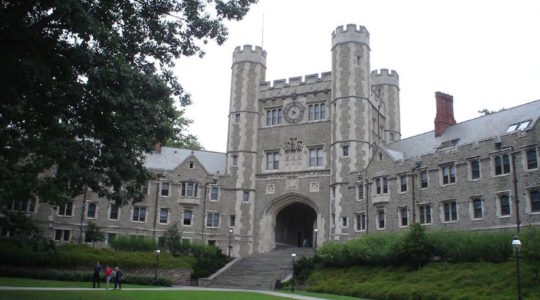WASHINGTON (JTA) — The U.S. Senate Appropriations Committee approved language that would distinguish between Palestinian refugees alive in 1948 and their descendants.
The amendment to the foreign appropriations bill, initiated by Sen. Mark Kirk (R-Ill.) and passed Thursday, requires the State Department to report within a year on approximately how many people are receiving assistance from the United Nations Relief and Works Agency "whose place of residence was Palestine between June 1946 and May 1948 and who were displaced as a result of the 1948 Arab-Israeli conflict; and who are descendants" of those people.
The State Department had expressed concerns about the language in the amendment, but Kirk prevailed.
"This will have major implications for future negotiations over final status issues with regard to refugees," said a senior Senate aide involved in shaping the amendment.
Should the Obama or any subsequent administration heed the new requirement, it would deliver a diplomatic blow to Palestinian efforts to leverage their refugee status in peace talks with Israel by aligning U.S. policy with Israel on the matter.
Palestinian negotiators have spoken of a "right of return" of refugees to Israel, and have suggested they would concede this in exchange for a final status package.
UNRWA, the main body assisting Palestinians, unlike other U.N. agencies assigns refugee status to descendants of Palestinians who fled the area during the 1948-1949 war, although in its definition it is careful to distinguish between the two populations. As a result, 5 million Palestinians are currently eligible for UNRWA services.
An estimated 30,000 Palestinians would fit the stricter definition of refugee.
The United States is a major UNRWA funder.
JTA has documented Jewish history in real-time for over a century. Keep our journalism strong by joining us in supporting independent, award-winning reporting.





